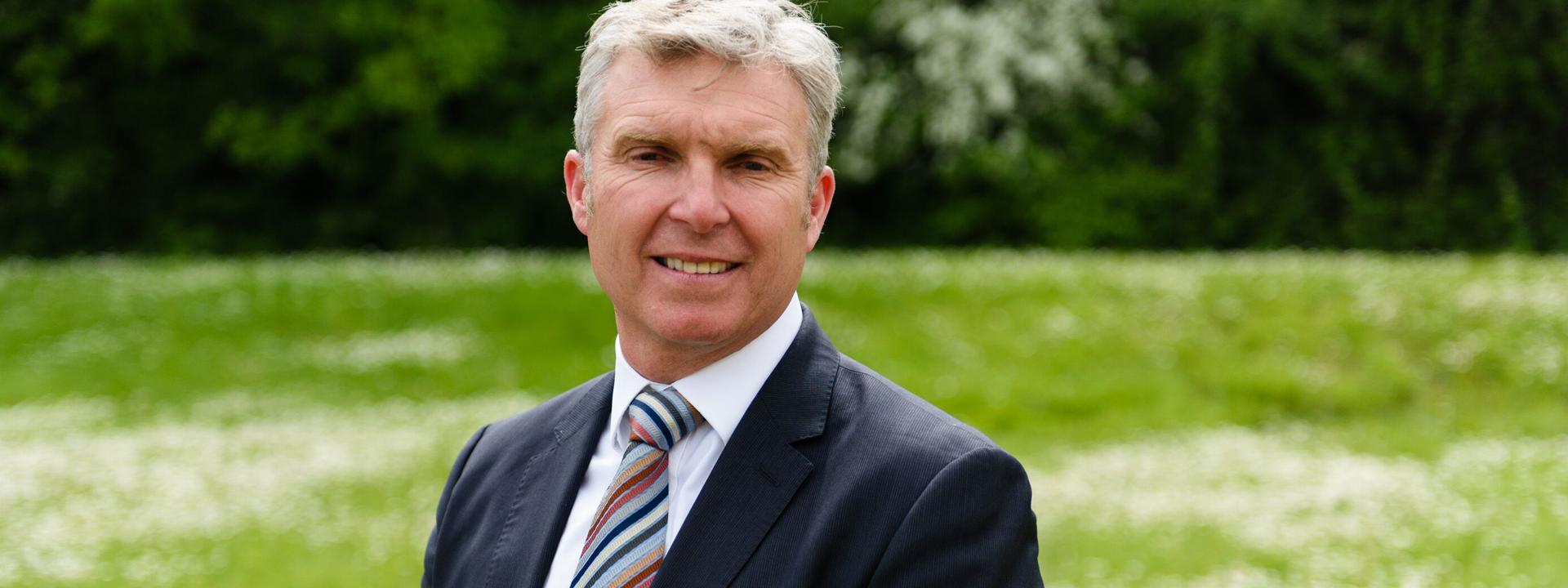Introduction by Daniel Cooper, chief executive officer, Hanson UK
2017 was a solid year of progress for Hanson UK. Our markets softened after a promising start as the continuing political uncertainty around Brexit held back construction activity. We were also hit by rising energy and bitumen costs and an adverse exchange rate as we buy a high proportion of our fuel oil and gas in dollars. However, we took some big strides forward in our drive to invest in our people and our plant to achieve our vision of becoming the sustainable market leader.
Three major capital projects – installing a new cement mill and rail loading facilities at Padeswood cement works in Flintshire, construction of two new marine aggregate dredgers and the redevelopment of our Victoria Deep water terminal in London – are all under way, while several other projects aimed at increasing efficiency were completed. These included major upgrades at our cement plants at Ribblesdale in Lancashire and Ketton in Rutland designed to save energy and reduce emissions.
We continued with our craft apprenticeship training programme and introduced a new vocational apprenticeship for mobile and fixed plant operators. We also recruited another group of school-leavers and graduates onto our bespoke training programmes aimed at developing the next generation of supervisors and managers.
Our customer service offering continued to improve and we introduced a number of new developments, from more efficient and lower emission trucks to better ways of sharing information using modern technology.
Our programme of sustainability workshops again proved popular with key stakeholders. Nearly 50 representatives from major customers and key trade associations attended the most recent event held at the Institution of Structural Engineers in London, which featured presentations on product development and innovation and an overview of our parent company HeidelbergCement’s 2030 sustainability commitments.
Turning to our own sustainability performance, I am delighted to report that mains water use and waste to landfill have both fallen below our 2020 targets and we have seen a welcome reduction in CO2 emissions to the lowest level for five years. Turning to safety, the number of lost time injuries remained static at 21, but the frequency rate was down on the prior year and we had a three month unbroken spell in the spring without a lost time injury. That tells me that zero harm is achievable – but it needs total buy-in from everyone in the organisation to make it a reality.
This year the focus will be on health and wellbeing as we launch a company-wide programme of activities. It includes quarterly themed activities, a corporate partnership with a leading mental health charity and a charter against which progress will be measured. There’s no doubt that the health and wellbeing of our people impacts the success of our business. Healthy and happy people are much less likely to have accidents or be off sick and are more engaged with their work.
Looking ahead, I want to ensure we establish ourselves as a fair, inclusive and diverse company that values meritocracy, openness and transparency. To support this, we have introduced a fairness and respect commitment, which is fully supported by the executive team and is being sponsored and led by our asphalt and contracting managing director James Whitelaw. We have also become a corporate member of Women in Science and Engineering (WISE), a national campaign which aims to increase the participation, inclusion and success of women in science, technology and engineering.
We will be working closely with WISE including participating in its ‘10 steps’ workshop, which aims to ensure women in industries like ours where they are in the minority have the same opportunities to progress their careers as their male colleagues.

